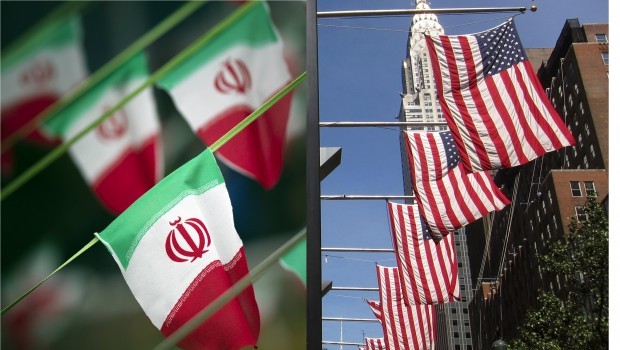The letter, written and sent last week, was signed by 131 members of both parties in the House of Representatives. A majority of signatories were Democrats, but 17 Republican representatives also endorsed the call for a diplomatic outreach to Iran.
Although the number of signatories is well below half of the total of 435 members of the lower house of the American legislature, the letter is unusual as Congress has consistently been at the forefront of pushing for more and harsher US sanctions on Iran.
For instance, in 2010, 366 members of the House of Representatives wrote to president Obama, branding the existing sanctions inadequate and urging more stringent measures be imposed on Iran in response to its nuclear program.
A prominent member of the National Iranian American Council, Reza Marashi, speaking to Asharq Al-Awsat, described the letter as “unprecedented and a breathing space for president Obama to maneuver”.
“We shouldn’t have any illusion about the significance of this letter as a political momentum after election of moderate Hassan Rouhani,” Marashi added.
The US president has repeatedly said that he favors the peaceful solution to the issue of Iran’s nuclear programme, but that “all options,” widely taken to mean military force, remain on the table.
Moderate Hassan Rouhani’s first-round victory in Iran’s June 14 presidential election caught many observers by surprise, with widespread predictions prior to the election that a hard-line conservative from the country’s “principalist” faction would emerge triumphant.
The election of Rouhani seems to have interrupted the usual routine of Congressional activity in regards to US policy towards Iran. In previous years, legislation proposing tougher sanctions on Iran has made its way from Congress to the White House by summer.
This year, however, the routine has been broken and the annual sanctions legislation has not been put forward to be signed into law by the president. According to the Washington Post, it will not be ready by October at the earliest, and may not even be ready by the end of 2013, which may leave open a window for US-Iranian talks.
In Iran, unconfirmed reports from Tehran say that president-elect Rouhani, who will sworn into office on August 4, will be traveling to New York to attend the annual General Assembly of the UN in third week of September. The next round of talks between Iran and the P5+1—the permanent members of the UN Security Council plus Germany—on the nuclear dossier is planned to take place by end of the same month..
Additionally, speculation of the resumption of direct bilateral talks between the US and and Iran has grown following the publication of an article on Thursday by Nicolas Burns, the former under Secretary of State during the Bush administration, predicted that direct talks between Iran and US government could take place before end of 2013.


please tell the UN and prsident Obama Democrasy is not punish counrty and a person base on supposition or accusation after more then ten yeard Iran has been punished by senction they did not found any document that Iran mad nucler bomb or they are after to make bomb yet,on the other hand Amarica help India to make nuclur bomb and this doublal standard we see in this time supported many country to make bomb or chmical wapon by the US ,Rausia,German French and UK .Iran called for shut down any Nuclear wepons and chamical wapons but these counties who make business in this way don’t blaimed its selves document shows they still are making such thid wepon and sent to Israeil,please tell
Mr Obama this is not Amarican democracy in the counstituton of the US